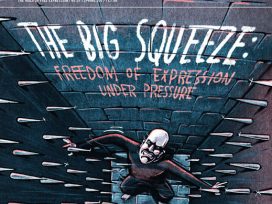International cooperation became a key feature in politics with the growth of global communication networks and globalization of trade in the 1990s. After 9/11, international cooperation hit a new level, with all the major international bodies supporting cross-border anti-terrorism measures. Agreeing was so easy that governments increasingly have policies that are unpopular on the domestic front ratified at international gatherings, then re-introduce them at home, where they can be justified as fulfilling international standards. Civil society and democratic procedures meanwhile are left out of the picture entirely. The process has become known as “policy laundering” and has made inroads into daily life more than is generally known. An overview of the new political landscape.

